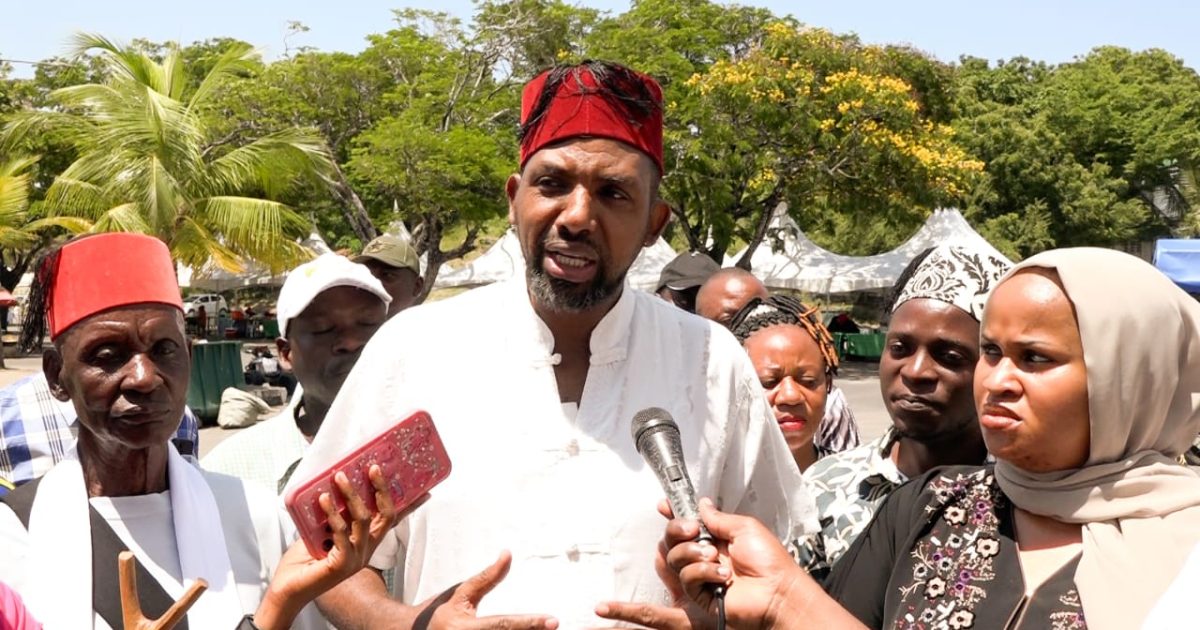SabaSaba takes a new course as youths honour anti-finance bill fallen soldiers
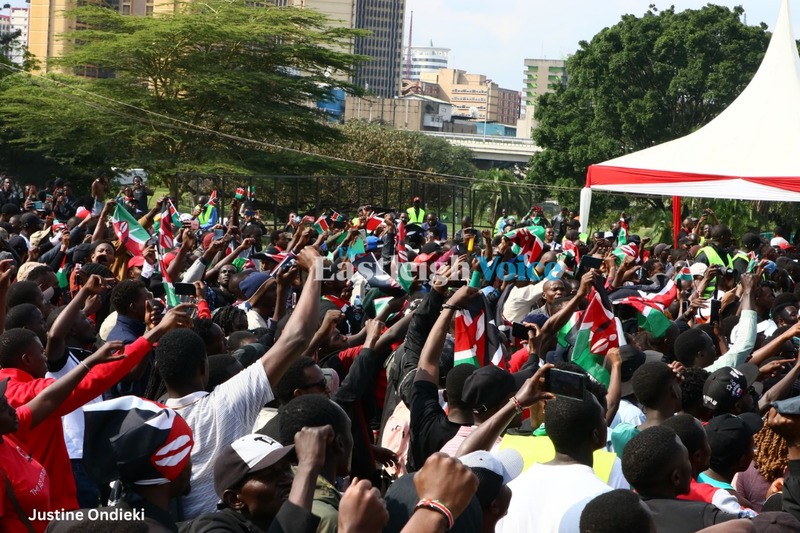
Earlier on, police were seen offering free food to protesters and even allowed them to take photographs near their vehicles and record TikTok videos near the armed officers.
Uhuru Park is renowned for hosting political rallies and events that have significantly shaped Kenya’s history, and on Sunday, July 7, 2024, the grounds witnessed another historic moment as the youths left an indelible mark.
Gen Z and Millennials gathered at Uhuru Park for the 'Shujaaz Memorial Concert' to celebrate heroes who lost their lives during last month's revolt against the controversial Finance Bill, 2024.
Data from the Kenya National Commission on Human Rights (KNCHR) shows that at least 39 people were killed in the nationwide protests that occurred from June 18 to July 1, 2024. It further reported 32 cases of abductions and 627 arrests of protesters, despite President William Ruto remaining adamant that his government had abolished kidnapping incidents.
More To Read
- African leaders hail historic peace agreement between Rwanda and DRC
- Full implementation of NADCO report puts UDA–ODM pre-election alliance under pressure
- Kanja admits police could have done better in handling Gen Z protests, advocates for training
- Amnesty exposes state-backed harassment network during Kenya’s 2024–2025 Gen Z protests
- Over 100 facilities accredited by SHA to provide cancer care after protests
- Kenyan Muslims plant 10,000 trees at Uhuru Park in solidarity with Palestine
Honouring the fallen soldiers on this day coincided with the historic SabaSaba, a day marked each year to remember the July 7, 1990, nationwide protests in Kenya that called for multiparty democracy.
The event's organisers, led by activist Boniface Mwangi, received their green light on Thursday after Nairobi Governor Johnson Sakaja authorised them to utilise the park and waived all the fees.
With the influx of youth, security was beefed up in Nairobi's Central Business District (CBD) and key government installations, with the government still reeling from the aftermath of the June 25 protests, in which demonstrators accessed Parliament after breaching its wall. However, the security breach was attributed to rowdy elements who hijacked the peaceful protests.
Roads leading to State House and Parliament buildings remained sealed off to motorists and pedestrians.
On Sunday morning, youths donning black colours started streaming in groups at Uhuru Park, where the memorial concert was being held, with flags and whistles in anticipation of the concert.
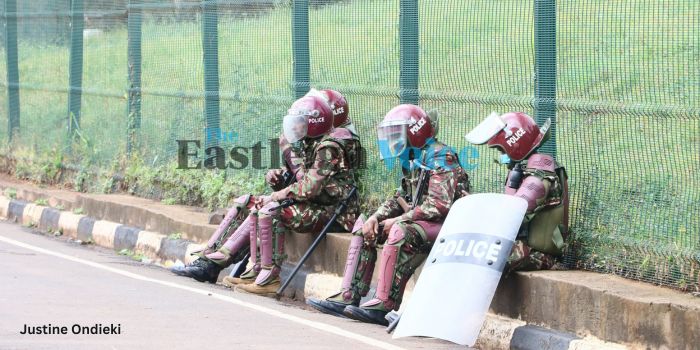 Anti-riot police officers outside Uhuru Park in Nairobi as members of the public register for the Shujaaz Memorial Concert on Saba Saba Day on July 7, 2024. (Photo: Justine Ondieki/EV)
Anti-riot police officers outside Uhuru Park in Nairobi as members of the public register for the Shujaaz Memorial Concert on Saba Saba Day on July 7, 2024. (Photo: Justine Ondieki/EV)
Perhaps carrying the national flag symbolised the struggle they faced with the police during the anti-Finance Bill and anti-government protests, which ultimately led President William Ruto to succumb to pressure and initiate the process to withdraw the Finance Bill.
Families of the fallen heroes then hammered crosses engraved with their names into the ground. The crosses were painted white, and each was tied with a bandana of the Kenyan flag colours.
Meanwhile, Kenyan musicians turned up to show support and entertain the crowds, who were eager to honour those who had died. According to Boniface Mwangi, the artists, including Nameless, Mr. Lenny, Khaligraph Jones, Sanaipei Tande, and Bien, did not charge a single coin for their electrifying performances.
Others were Gravitti Band, DJ Double Trouble, Field Marshall Band, Njerae, DJ Lordiwn, MC Kwambox, MC Kibunja, and MC Njoria, among others.
Musician Eric Wainaina moved the crowd to tears with his iconic performance of "Daima Mkenya." The song reverberated throughout the protests as Gen Z resonated with the musician's passion for his country.
Kenya's flags were raised high and waived throughout the song, with clips of Wainaina later shared across social media platforms with captions such as 'The moment we were waiting for', 'The song of the year', and 'The theme song'.
Artist Julius Owino, known by his stage name Juliani, also performed his hit Utawala which speaks against corruption and poor governance.
Activist Boniface Mwangi, one of the key organisers, said they managed to pull off the concert with only 48 hours of planning.
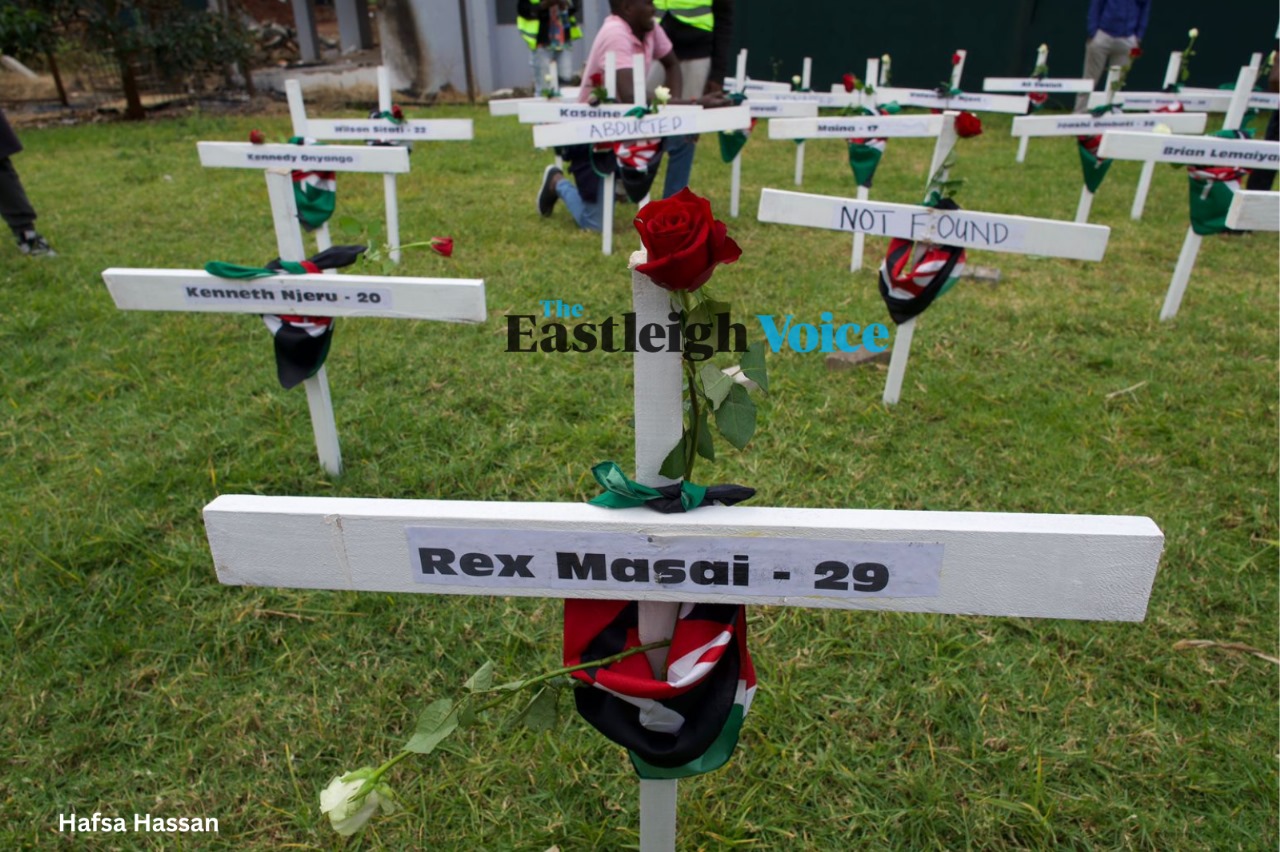 Crosses for each individual harmed during anti-tax protests, including those missing following abductions, are pictured at Uhuru Park in Nairobi ahead of the Mashujaaz Memorial Concert on July 7, 2024. (Photo: Hasfa Hassan/EV)
Crosses for each individual harmed during anti-tax protests, including those missing following abductions, are pictured at Uhuru Park in Nairobi ahead of the Mashujaaz Memorial Concert on July 7, 2024. (Photo: Hasfa Hassan/EV)
"To the friends who did everything to ensure we could pull this off within 48 hours, you know yourselves, and I truly love you for free. Nyinyi ni wa true," he said.
Earlier on, police were seen offering free food to protesters and even allowed them to take photographs near their vehicles and record TikTok videos near the armed officers.
After the Uhuru Park concert, which ended at around 6:10 am, the crowd headed to the CBD and positioned themselves at Moi Avenue, where they held a 'street party' and danced to Kenyan songs.
Unlike the previous protests, police did not interfere with the concert in Nairobi or the gatherings in other parts of the country.
In Kisumu, the peace concert was held at Jaramogi Oginga Odinga Sports Centre. Meanwhile, business continued as usual at the Kondele roundabout, a usual gathering point for protesters.
Several police officers were stationed at key locations in the city, including the Agakhan roundabout, Jaramogi Sports Centre, and the Kisumu State Lodge.
While some shops remained closed in the lakeside city, Kibuye Market bustled with activity as hundreds of locals and traders patronised the market.
In Mombasa County, the event at Uhuru Gardens in the CBD featured a concert filled with music and artistic expressions, diverging from the customary demonstrations.
Speaking at the concert, young men and women emphasised that efforts related to the anti-Finance Bill protests, which had led to the loss of lives, held significant importance.
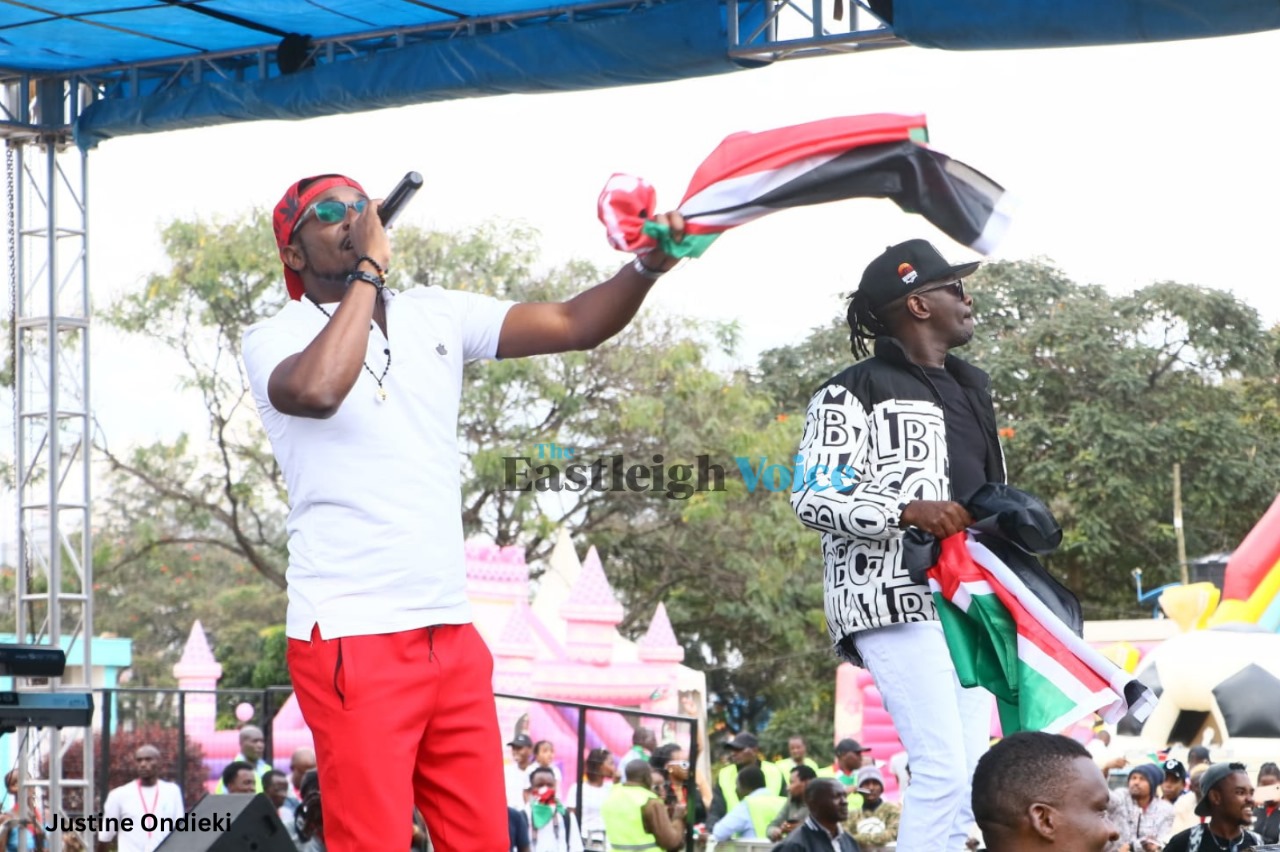 Nameless and Mr. Lenny perform live at Shujaaz Memorial concert at Uhuru Park on Sunday, July 8, 2024. (Photo: Justine Ondieki)
Nameless and Mr. Lenny perform live at Shujaaz Memorial concert at Uhuru Park on Sunday, July 8, 2024. (Photo: Justine Ondieki)
Top Stories Today












